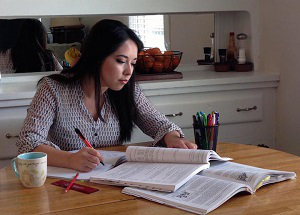After years of observing and sometimes participating in the "fringe science" arena, I've come up with a set of rules which I try to follow.
Rule One: If I've made a discovery which violates the laws of conventional physics, then I've almost definitely made a mistake somewhere.
Seriously! Even though I'm involved with non-mainstream science, I intentionally maintain this "skeptic" belief for many reasons. If I let myself start "knowing" that I've found anomaly, I will stop, trying to double-check the results, trying to think up conventional explanations, trying to look for mistakes, looking for subtle ways I've fooled myself. I've seen how easy it is for people to talk themselves into things. I want to avoid these traps. Second, if I keep strongly suspecting an error, I will resist the temptation to let my ego get the better of me. I know the extent and the power of my ego, and that delusions of being great are very easy to fall into.
Rule Two: Publicise it and let others help me find my mistake. Avoid SECRECY, the destroyer of new science.
This rule is a natural consequence of rule one: If I intentionally maintain a conviction that there is a mistake somewhere, then wide publicity is the fastest way to get help in finding it. If instead I hide my discovery from all the greedy people who want to steal it, then I also subvert (搅乱) the whole process of idea-testing by fellow researchers. If my discovery is a mistake or delusion, others may help me discover this, but if I keep it secret, I may remain deluded for decades.
I've come to see that there is one big thing that ruins these fields of amateur research. That thing is SECRECY. Every time amateurs think they've stumbled across something important, they go silent and treat their discovery as a Big Important Secret which must be preserved at all costs from the many enemies who want to steal it. This is garbage! At the same time, it wrecks their discovery by burying it. True, there are often business reasons, but the majority of "weird science" discoveries are not kept secret for this reason. They are kept secret because of shameful human psychology, because of inventors' desire for attention, because of our need to control, and because of our need to be important, to gain fame and accolades, etc. I can say such things because I too have suffered from this kind of "inventor's disease". I solved the problem by posting my inventions on Internet! If a single inventor discovers something wonderful, but it does no good at all for mankind, and is not really a discovery at all, it is an ego trip. Only if an inventor discovers something wonderful and then STARTS SELLING PRODUCTS, or better yet, TELLS EVERYONE THE SECRET, does it make the world a better place.
Rule Three: Figure out what other o/u inventors did, and then do the opposite!
Inventors over and over have announced o/u discoveries, yet where are they now? Secrecy is the biggest one. Another one is to assume that everyone wants to steal your valuable discovery. Another one is the attempt to sell the discovery to governments or giant corporations. Another is the loss of humility and pursuit of fame. Another is the assumption that scientists will automatically hall your discovery, and that businesses will compete for rights to manufacture it.
Therefore, in order to succeed, we must do some historical research, discover the guaranteed routes to failure, and then avoid them.
Rule Four: Keep a journal. If you notice something strange, WRITE IT DOWN.
Human minds are funny about anything which violates our expectations. Our minds want to maintain a coherent world, so we tend to forget things which don't fit. Amateur scientists should never stop fighting against this tendency in themselves. Avoid too much skepticism. Search for "weird" unex
A.Y
B.N
C.NG
 题目内容
(请给出正确答案)
题目内容
(请给出正确答案)

 如搜索结果不匹配,请
如搜索结果不匹配,请 























